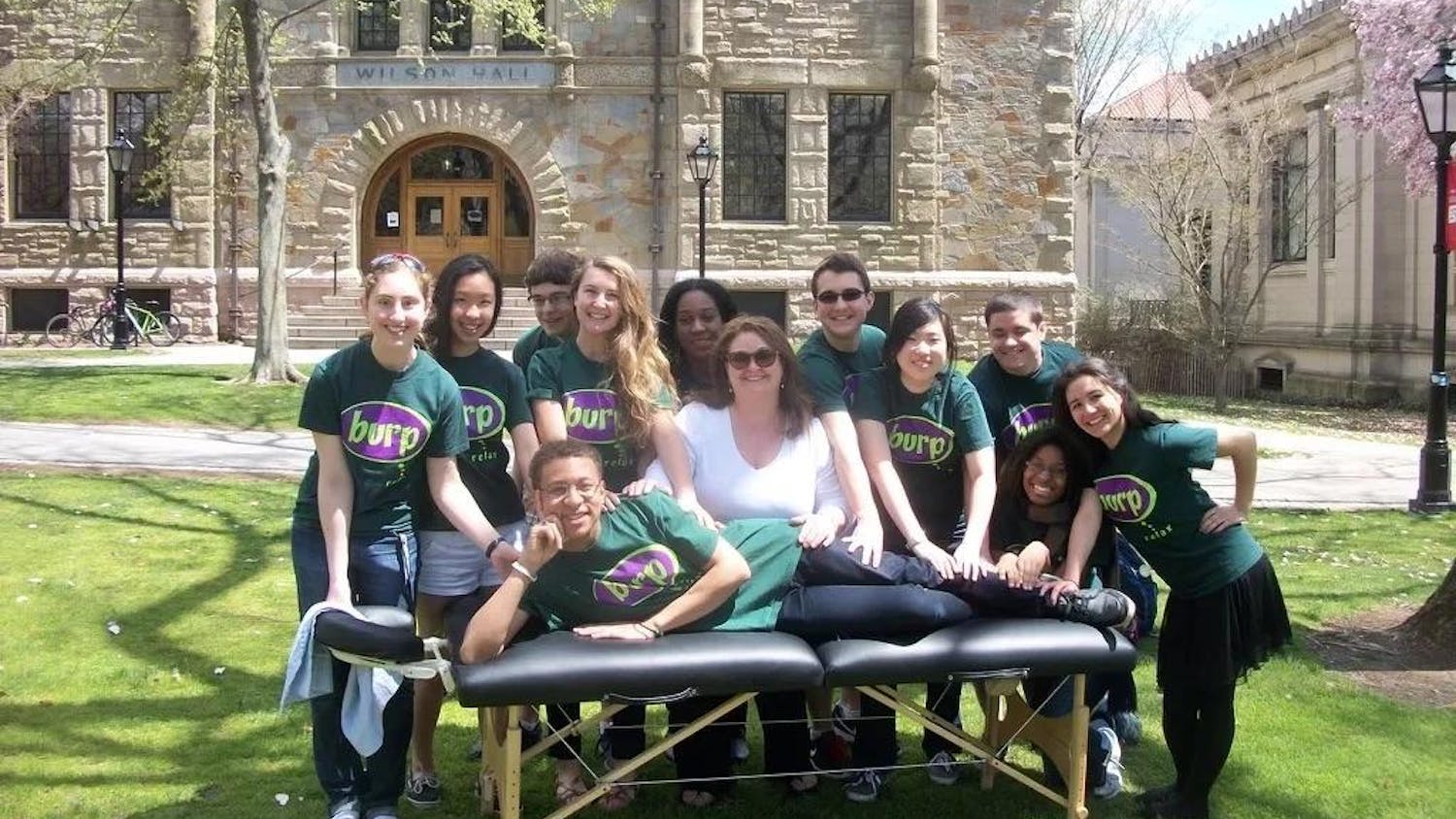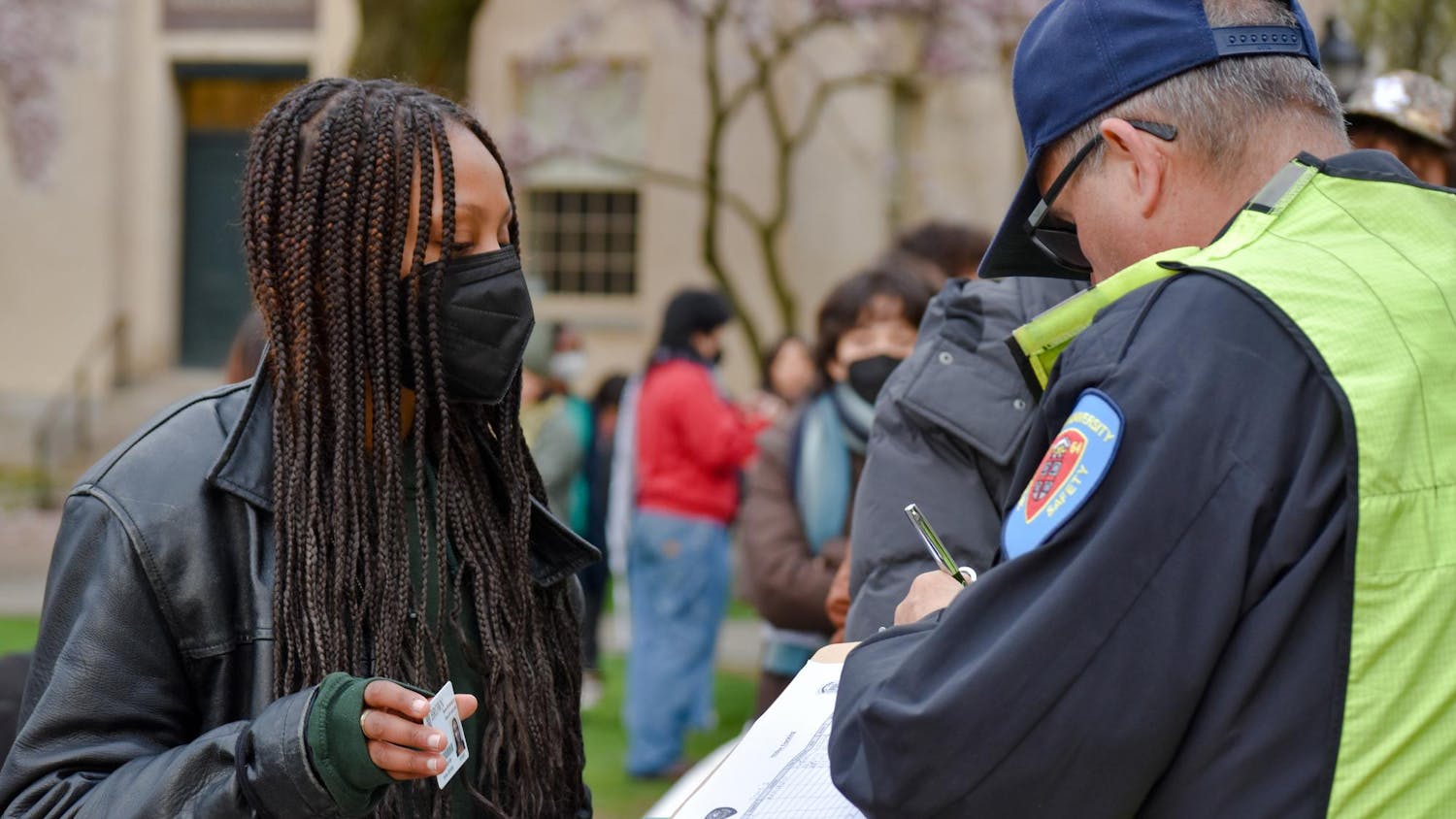After learning in November that he had won a prestigious Rhodes Scholarship, Rakim Brooks '09 decided to go back to his home in the Bronx to avoid the cascade of congratulations he faced on campus.
"Looking back, I probably should have stayed to enjoy the moment a bit more," he said with a laugh. But just months before he got the good news, the scholarship was only one of many post-grad options on the Africana Studies concentrator's mind.
"Why shouldn't I apply?" was Brooks' reasoning. He was in the process of finding jobs, he said, and applying for other scholarships as well.
Created in 1902, the Rhodes Scholarship is one of the oldest international scholarship programs. It funds advanced studies at the University of Oxford in Great Britain.
Although he tends to describe himself as a "recluse," Brooks' involvement on campus would indicate anything but. Over his four years here, Brooks has been involved with the Undergraduate Council of Students, serving as the Academic and Administrative Affairs Chair and as a member of the Elections Board. He also served as a student representative on the Task Force for Undergraduate Education.
"I usually did things because I felt compelled to do so," said Brooks of his campus leadership, adding that he evaluates his career at Brown not by particular hallmarks or accomplishments but rather sees it as a holistic experience.
Brooks says he found a niche for himself in the Africana Studies department. He had the opportunity to take part in three of the department's faculty searches even by his sophomore year. Brooks said he appreciated the privilege of being able to chose the professors that would shape his educational experience.
One of these searches would bring a great mentor. Brooks cites Africana Studies Professor Tricia Rose as a "profound intellectual and emotional" influence on his time at Brown. Her class, AFRI 0057 "20th Century Black Feminist Thought in Theory and Practice," was probably the most "intellectually important class" Brooks says he has taken here, remarking that it exposed him to the intricate intermingling of race, gender and sexuality — a topic that became one of the focuses of his concentration work.
Brooks is in the process of getting a passport — his only time abroad has been at a Jamaican resort. He begins Oxford in October, starting graduate work in political theory. True to the interdisciplinary tastes he picked up at Brown, he hopes to dabble in economics, philosophy, neuroscience and, he says, perhaps even French and German.
Despite his broad academic ambitions, Brooks says he remains grounded. He reads unemployment reports regularly and hopes to use his studies to affect policy changes in the United States. Specifically, he seeks to make the connections between his concentration in Africana Studies and the labor and the workforce issues that are currently the news. He says he sees himself as a member of a generation of progressives with a unique chance to make a lasting impact in the world.
While he says he can't imagine becoming a politician due to his "unwillingness to compromise on values," Brooks expresses interest in being an "advocate for policy reform," pushing policy makers by engaging communities on grassroots levels. His greatest desire is to be what he calls a "public educator," a role he says has diminished in the United States today, which involves taking an active role in communities to educate and empower its members through intellectual development in and outside of the schoolhouse.
As he is in the first generation of his family to attend college, Brooks said his family did not know much about the scholarship. But they were simply proud of him for "doing great for himself," he said.
ADVERTISEMENT




